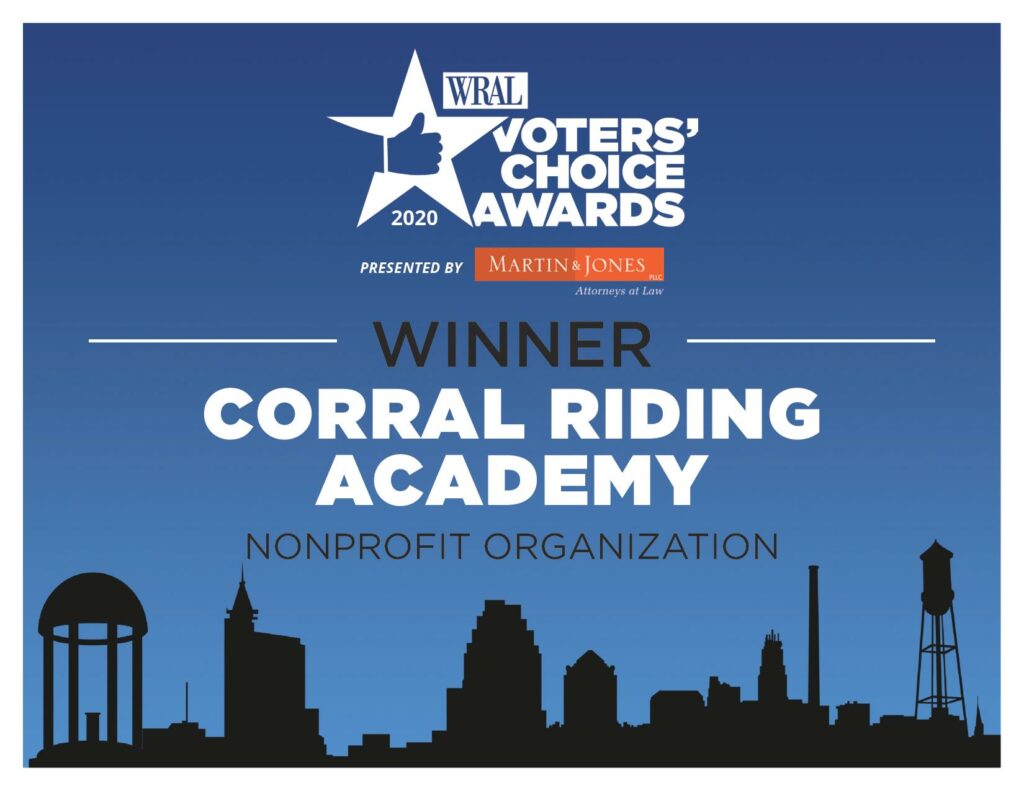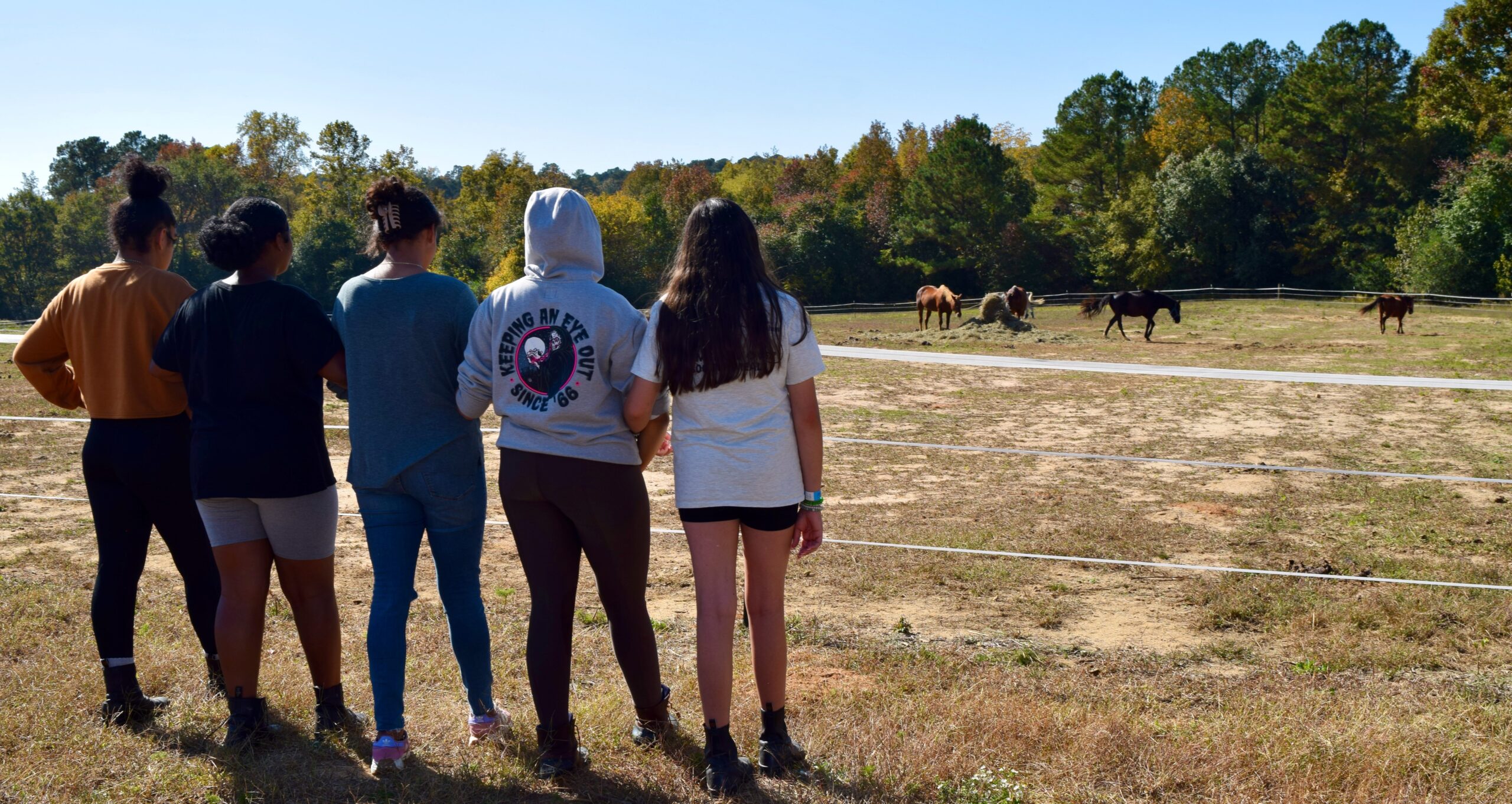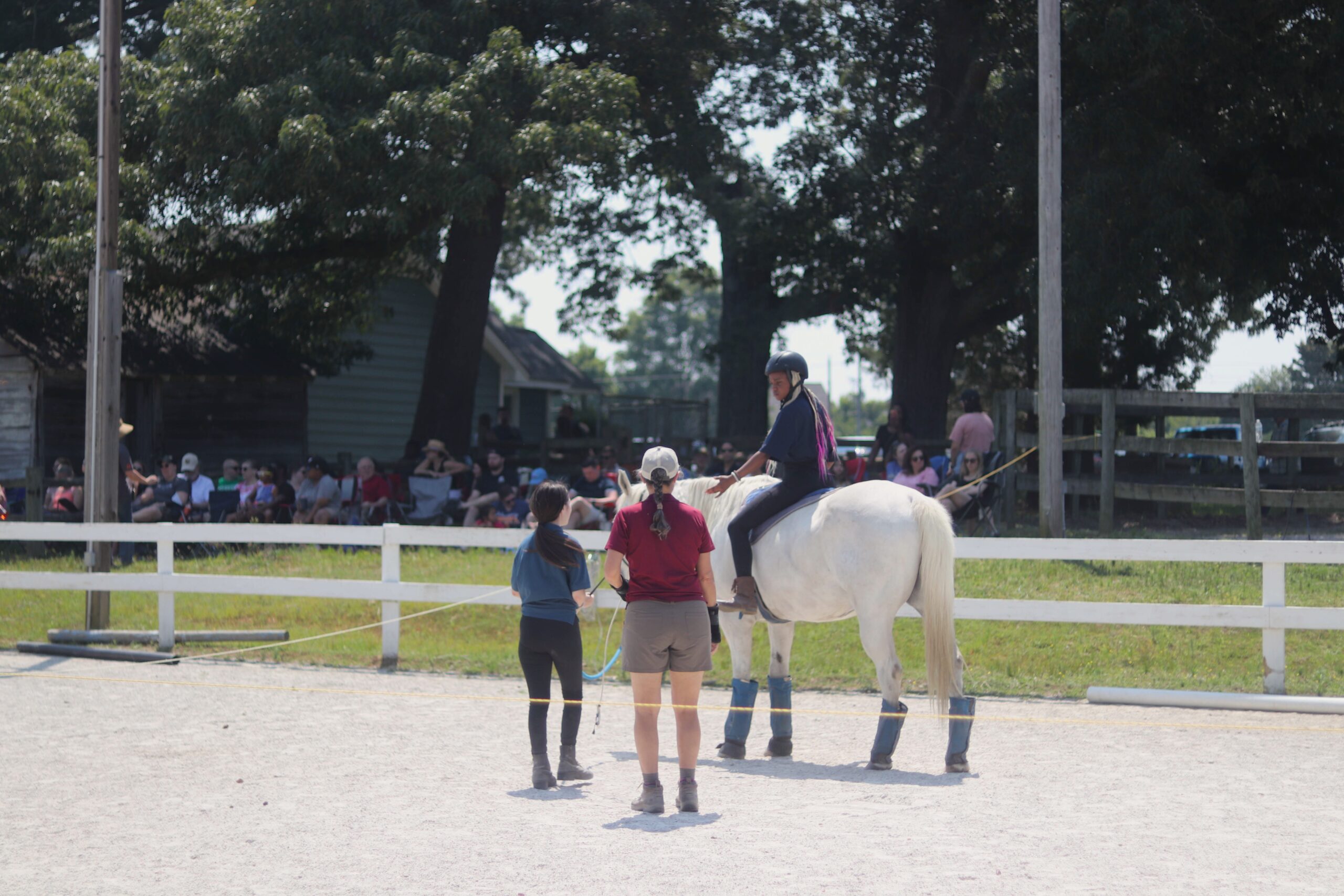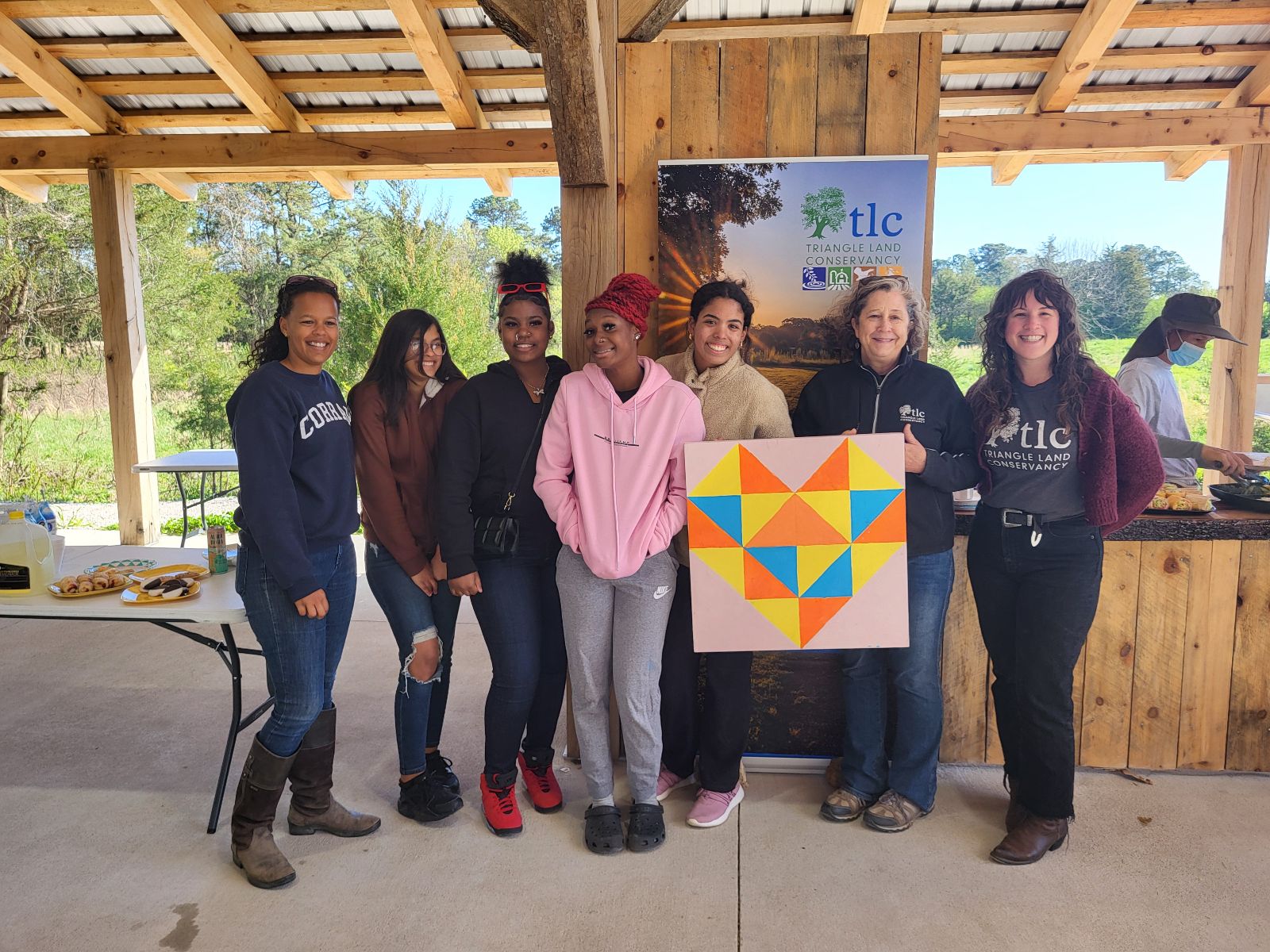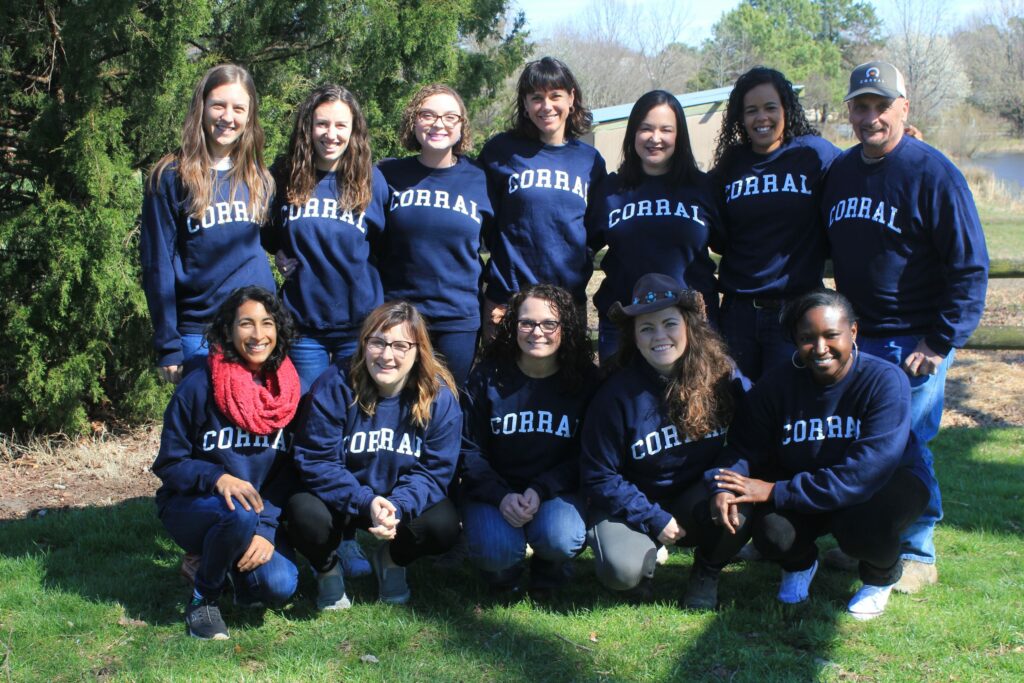Cary, N.C., January 14, 2021 – The CORRAL Riding Academy is celebrating its recognition as the best nonprofit of the WRAL Voters’ Choice Awards. During the latter months of 2020, WRAL’s audience nominated the best in local businesses, community, education, and other categories. CORRAL is honored to receive this award and hopes to gain visibility regarding its crucial role in the community. Since March of 2020, CORRAL has quadrupled its critical services to serve the most vulnerable young women in our community whose high-risk situations have been amplified by this pandemic.
Established in 2008, CORRAL is a faith-motivated nonprofit that equips adolescent girls in high-risk situations through a long-term, systems-oriented, holistic program of equine therapy and education, so each girl can have the skills, resources, and opportunities to gain access to a bright future. When the pandemic hit, CORRAL swiftly adapted its program to a virtual space as many of its participants’ social services were dropped before returning to in-person services with strict safety protocols. Once an after-school program, CORRAL is currently a full-time academic intervention, mental health, vocational training, family counseling and college prep services provider.
“We saw our girls completely derail when the pandemic hit and knew there was no way we could shut down. I’m happy to say that 10 months later, our girls have gone from surviving to thriving. When we saw how far they fell behind last spring, we created a summer math and reading remediation program, which was highly successful and a catalyst for a very robust, fall program. At our Cary campus, our girls finished the fall 2020 semester (pre-exams) with a GPA average of 85 percent. And, at our newer Neuse River Campus, the girls’ average GPA has jumped by over 20 points in a few weeks,” says Joy Currey, Co-Founder and Executive Director who fully stepped into the role as Program Director this past semester to maintain the high-quality standards of the program.
Like many other small businesses and nonprofits, CORRAL faced organization-wide challenges from having to navigate a pandemic during a time of increased need. “This past spring, we were constantly on our toes, creating safety COVID protocols, trying to keep our girls alive and on track in schools, and brainstorming how we could mitigate the financial deficits incurred from having to cancel our community events and largest fundraiser,” says Neyra Toledo-Osorio, Director of Operations. “I believe we’re making it through this because of the collective effort of our community. From dropping off cleaning supplies, to providing groceries for our girls’ families, taking care of our horses, and supporting our work in our annual end-of-year giving campaign ‘Amplify Their Voices,’ our volunteers and donors have stood by us. They believe in our mission and see the profound impact we have on our girls’ futures. And, that gives our staff hope every day to continue doing our best possible.”
For more information about CORRAL’s mission and how to get involved, please visit www.corralriding.org. CORRAL offers many volunteer opportunities at either farm in Cary or Southeast Raleigh and remotely. To support CORRAL’s recent fundraising efforts, please visit corralriding.org/amplifytheirvoices. For interview requests, please email camille@corralriding.org.
www.corralriding.org || 919.355.2090 || info@corralriding.org
About the CORRAL Riding Academy: CORRAL is a faith-motivated nonprofit that equips adolescent girls in high-risk situations through a long-term, systems-oriented, holistic program of equine therapy and education so each girl can have the skills, resources, and opportunities to gain access to a bright future.
Additional Resources:
- Communicating Resilience among Adolescents with Adverse Childhood Experiences (ACEs) through Equine Assisted Psychotherapy (EAP)
- Building Community Resilience
CORRAL’s Diversity Statement: CORRAL aims to serve the highest risk girls in our community. Among those risk factors is the intangible yet pervasive influence of systemic racism. As members of a marginalized population, young people of color are statistically more likely to have negative health, academic and economic outcomes. Understanding this context, CORRAL bears the same responsibility to heal the trauma our girls have experienced due to systemic racism just as much as more commonly understood forms of trauma ie. physical or emotional abuse.
###

